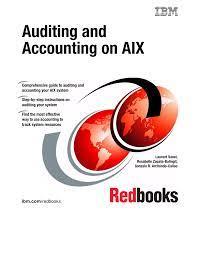Round all calculations to two decimal places. 1. Calculate each division's ROI. 2. Calculate each division's sales margin. Interpret your results. 3. Calculate each division's capital turnover. Interpret your results. 4. Use the expanded ROI formula to confirm your results from Requirement 1. Interpret your results. 5. Calculate each division's RI. Interpret your results and offer recommendations for any division with negative R1. 6. Total asset data were provided in this problem. If you were to gather this information from an annual report. how would you measure total assets? Describe your measurement choices and some of the pros and cons of those choices. 7. Describe some of the factors that management considers when setting its minimum target rate of retum. 8. Explain why some firms prefer to use RI rather than ROl for performance measurement. 9. Explain why budget versus actual performance reports are insuticient for evaluating the performance of investment centers. Canvas Paints is a national paint manufacturer and retailer. (Click the icon to view additional information.) Issume that management has specified a 20% target rate of return. kead the reguiroments. Data table The company is segmented into five divisions: Paint Stores (branded retail location), Consumer (paint sold through stores such as Home Depot and Lowe's), Automotive (sales to auto manufacturers). Wedth of a percentage, x%. International, and Administration. The following is selected hypothetical divisional information for the company's two largest divisions: Paint Stores and Consumer (in thousands of dollars). Camvas Paints is a national paint manufocturer and retailoc, [Click the icon to view additional information.] Assume that management has specifiod a 20% target rate of rehurn. Read the requirements, Requirement 1. Calculate each divisicn's ROI. First enter the formula, then calculate the ROI Aar each division. (Enter the ROl as a perceat rounded to the neareat hundrodth of a percontape; X XXF.) Round all calculations to two decimal places. 1. Calculate each division's ROI. 2. Calculate each division's sales margin. Interpret your results. 3. Calculate each division's capital turnover. Interpret your results. 4. Use the expanded ROI formula to confirm your results from Requirement 1. Interpret your results. 5. Calculate each division's RI. Interpret your results and offer recommendations for any division with negative R1. 6. Total asset data were provided in this problem. If you were to gather this information from an annual report. how would you measure total assets? Describe your measurement choices and some of the pros and cons of those choices. 7. Describe some of the factors that management considers when setting its minimum target rate of retum. 8. Explain why some firms prefer to use RI rather than ROl for performance measurement. 9. Explain why budget versus actual performance reports are insuticient for evaluating the performance of investment centers. Canvas Paints is a national paint manufacturer and retailer. (Click the icon to view additional information.) Issume that management has specified a 20% target rate of return. kead the reguiroments. Data table The company is segmented into five divisions: Paint Stores (branded retail location), Consumer (paint sold through stores such as Home Depot and Lowe's), Automotive (sales to auto manufacturers). Wedth of a percentage, x%. International, and Administration. The following is selected hypothetical divisional information for the company's two largest divisions: Paint Stores and Consumer (in thousands of dollars). Camvas Paints is a national paint manufocturer and retailoc, [Click the icon to view additional information.] Assume that management has specifiod a 20% target rate of rehurn. Read the requirements, Requirement 1. Calculate each divisicn's ROI. First enter the formula, then calculate the ROI Aar each division. (Enter the ROl as a perceat rounded to the neareat hundrodth of a percontape; X XXF.)









